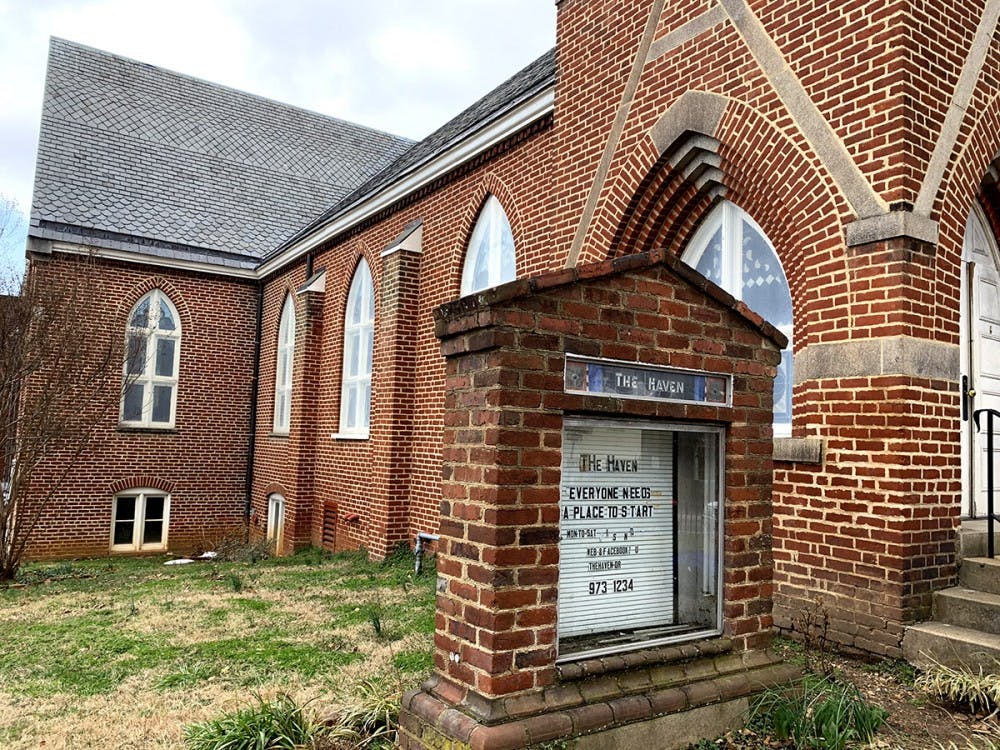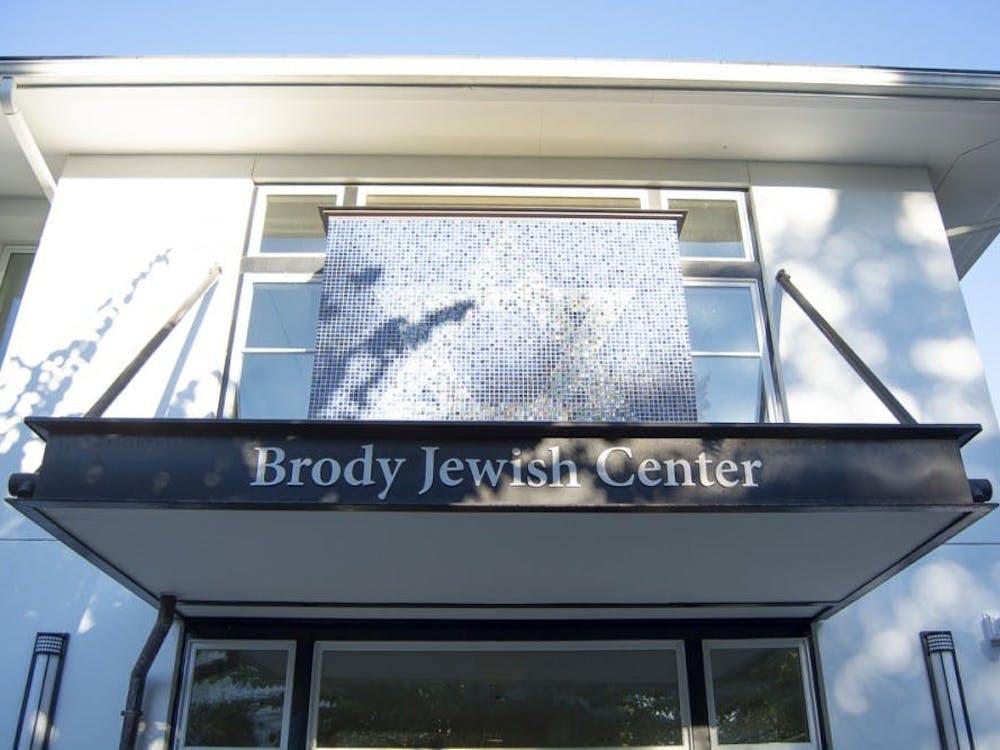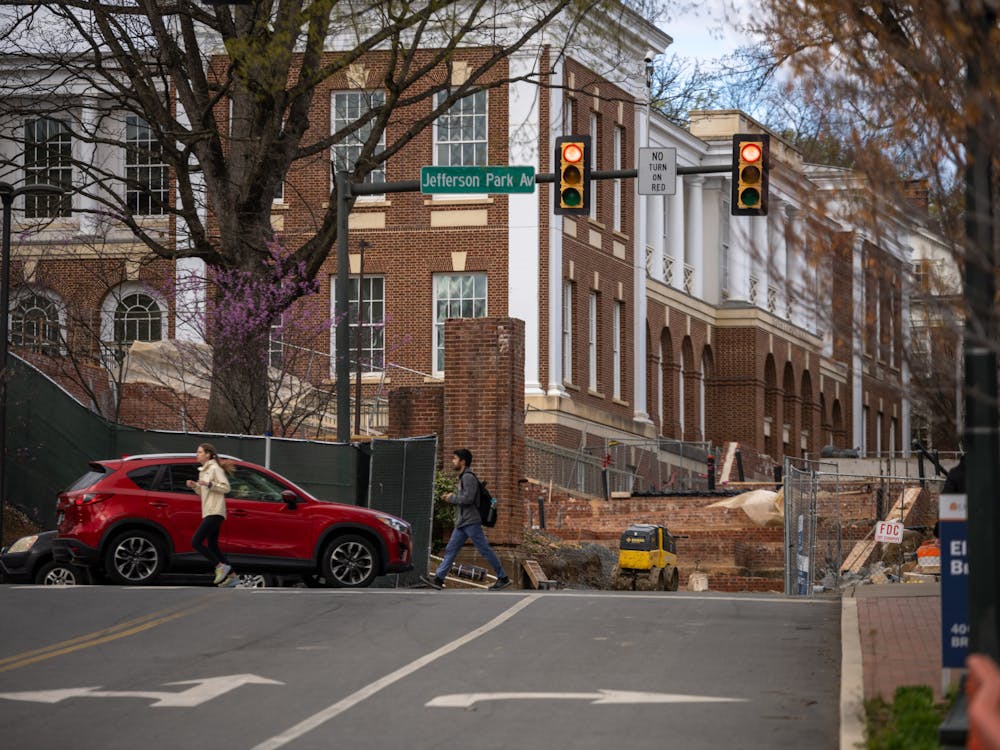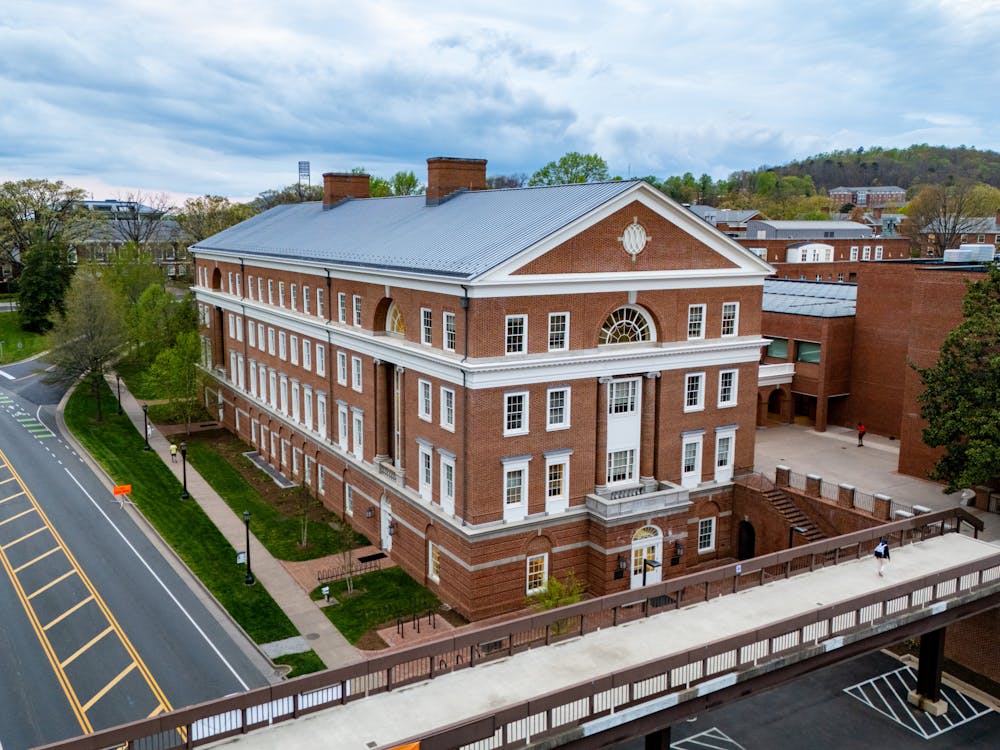In downtown Charlottesville, The Haven stands tall as an inviting sanctuary to all those who come across it. Outside the church building converted to a homeless shelter, a sign reads, “Everyone needs a place to start.” Inside, dozens of individuals are resting in pews or downstairs enjoying a meal. The Haven serves as a shelter for the homeless population of Charlottesville, who may otherwise have nowhere else to turn to for assistance.
Being more than simply a physical space to congregate, The Haven also hosts the offices of Peoples and Congregations Engaged in Ministry — a shelter that utilizes local churches a place to sleep in colder months — and the Thomas Jefferson Area Coalition for the Homeless — a non-profit coalition of local organizations who work together to end homelessness in the region. These services — along with laundry services, showers, mailing addresses and storage — exist to aid the homeless and fill gaps that may exist in the availability of resources. The central focus of The Haven in providing this support system is to serve as a launchpad for guests’ transformation from homelessness to sustainable living.
Homelessness exists throughout the City of Charlottesville and its metropolitan region comprised of Albemarle, Greene, Nelson, Louisa and Fluvanna counties. According to statistics from TJACH, the number of people in this metropolitan region who were served for homelessness at any given moment in a specific year rose from 283 to 440 between 2013 and 2018.
TJACH Executive Director Anthony Haro said this rapid uptick is due to a complicated paradox of local organizations’ expanding ability to help this community and the rapid increase of the region’s affordable housing crisis in recent years. The region is in need of over 4,000 affordable units — defined by the U.S. Department of Housing and Urban Development as one a three-member family can purchase or rent for 30 percent or less of the area’s median income of $60,047 — in order to satisfy current demand.
“I think that the housing needs in the community are more significant now, and that is contributing to the rise in the number of people who fall into homelessness,” Haro said. “But I think that number of increase can be attributed to an increase in our system’s capacity to help people. That’s an important thing to note.”
Dynamics and demographics of homelessness
The homeless population in Charlottesville is largely comprised of adults between 25 and 54. Additionally, black individuals are overrepresented at just under 50 percent of the homeless population, which is disproportionate to the 13 to 20 percent of black community members in Charlottesville’s overall population. Despite a large proportion of middle-aged adults and black citizens who are homeless, however, Haro describes the problem as a dynamic one. According to Haro, there exists a wide variety of reasons why individuals find themselves falling into homelessness, including job losses, unresolved health problems and domestic violence.
“There’s different needs that exist in the homeless population,” Haro said. “It’s not a homogenous population, if you will. It’s often just people like you and I who fall on hard times and there’s different needs across the whole spectrum.”
Janette Kawachi, the chief partnership officer at Habitat for Humanity’s Charlottesville arm and a TJACH board member, described a recent applicant to the Habitat program from Richmond who had been both living out of her car and receiving resources from a local shelter after she escaped a domestic violence situation. Thirty-four percent of homeless adults in the Charlottesville area are women, and 25 percent of homeless adults in the area were victims of domestic violence at some point in their past.
Habitat in Charlottesville is only able to accept 10 percent of their applicants due to both a lack of resources and a high value of applicants to their homeownership program, which works with low-income families to provide them with a permanent, stable housing solution. Their recent work has focused on fighting gentrification in the region through purchasing homes in gentrifying areas in order to restore them and sell them at affordable prices and creating a “Pathways to Housing” program. The Pathways program accepts families that typically may be rejected from Habitat homeownership due to reasons including debt, poor credit or an income that does not meet Habitat’s income threshold.
Another Habitat applicant found herself and her family unexpectedly homeless after a devastating job loss. The family had no choice but to double up in a small unit with their grandparents — a category Kawachi and others refer to as the “invisible homeless,”or multiple families who are forced to reside in the same unit due to a lack of stable housing — with the parents sleeping on couches and their five children sleeping on the floor.
From Haro’s perspective, all forms of homelessness are a prevailing issue that cannot be resolved by temporary efforts, but rather by long-term work that involves generating an adequate and affordable housing stock for the area’s homeless population to transition into.
“Housing solutions are the answer to homelessness,” Haro said. “We can’t continue putting Band-Aids on the issue. We need to deal with the issue by addressing the ultimate solution, which is increased housing resources.”
Generating solutions in the face of an affordable housing crisis
Several other organizations apart from TJACH and Habitat are actively working to provide temporary shelter and resources to the area’s homeless population, including The Haven.
As a low-barrier shelter, there is no drug or breathalyzer test administered prior to admission to The Haven, and there is no requirement that guests have a regular income of some kind to qualify for shelter. The site is accessible to anyone seeking its aid, regardless of circumstance. The shelter can thus accommodate the homeless population to its fullest extent, with a maximum capacity of 384 people. The Haven’s mission statement describes this nondiscriminating welcome policy as “radical hospitality.”
Stephen Hitchcock, executive director at The Haven, said services such as Region Ten — which assists those struggling with mental health, disability or substance abuse — and the Departments of Social Services and Veterans Affairs connect with guests as part of the organization’s “Housing First” mission, which diverges from the traditional shelter-based approach by acknowledging homelessness as a housing crisis. Hitchcock said the shelter-based approach — however supportive and comprehensive it may be — does not adequately address the sheer lack of affordable housing at the root of homelessness.
The Haven serves as a support system for those on the path to sustainable and stable housing. One of The Haven’s former residents, James, began receiving services from the day shelter five months ago after his journey through rehabilitation and relocation to Charlottesville from Newport News. Since he first began volunteering as a resident, James has earned a job as a shift supervisor at the shelter, and he has received housing accommodations with The Haven’s assistance. James said The Haven helped him turn his life around — supporting him and giving him an opportunity to support others.
“The Haven has definitely been a blessing,” James said. “I wanted to stay away from the craziness when I started here, and I began to like working with homeless people. I can identify with them — I’ve been there. I have compassion for them because I’ve been in the same place, and I want them to see that life can change. Life can be different.”
However, James said that although he’s been fortunate in his own experience, many more residents at The Haven are still struggling to find a home to call their own. James said the lack of affordable housing and the high cost of living in Charlottesville leave many in need of The Haven’s assistance.
“That is the main thing in Charlottesville, is housing,” James said. “The cost of living is sky high, and low income housing’s very rare … Charlottesville’s not that big, so most of the people that’s homeless would be here [at The Haven]. It’s not really a lot, but to me it’s enough people here, where they could be easily helped if somebody would.”
From the last week of October through mid-April, guests at The Haven in need of shelter for the night are taken in by PACEM. A rotation of 80 local congregations and community groups provide respite for those without sufficient protection from inclement weather.
PACEM executive director Jayson Whitehead said the need for these services has been increasing in recent years. During operations, PACEM hosts an average of 42 men and 13 women. This is maximum capacity for men and also at maximum capacity for women. Whitehead, like the city’s other experts on the subject, said the high demand is most directly related to Charlottesville’s shortage of affordable housing units.
“Since about mid December, we’ve been at max capacity on our men’s site almost every night,” Whitehead said. “We were actually full on our women’s site — I think it’s been three straight nights now — which is pretty unusual. And then that’s building on last season.… We saw the highest number of unique individuals that we’ve ever seen, which was 243 folks for our 24 weeks, and we’re on a similar pace.”
Community impact and a housing hub
This implementation of support systems for the homeless community has proven to significantly influence the community at large as the City has struggled to address the affordable housing crisis in recent years. A proposal for a $50 million bond to rectify the crisis was never directly addressed by City Council, and it is unclear why councillors chose not to publicly address it. Additionally, the overhaul of the City’s comprehensive plan and zoning codes — the key determinants of where high-density and affordable housing units can be developed in the City — is expected to take up to three years to complete.
Kawachi said that Habitat, TJACH, the Charlottesville Redevelopment Housing Association and a number of other organizations in the area have recently taken action under the umbrella of the the Charlottesville Low-Income Housing Coalition to establish what Kawachi calls a centralized housing hub for individuals and families who need housing assistance. This could mean providing resources for a variety of housing needs — including homelessness, home repair or rehab or searching for an affordable market unit — in a singular place, due to the current lack of synthesized and coalesced solutions and resources.
“[What] we are really pushing and focusing on is the development of what we call a centralized housing hub,” Kawachi said. “We’re trying to create essentially a hub where folks can come, because that is one of the primary things we’ve heard from individuals who are having housing issues or are experiencing homelessness is that they have nowhere to go.”
The coalition filled out the grant application with the Charlottesville Area Community Foundation, a non-profit, philanthropic organization that provides funding to projects improving the quality of life in the metropolitan region. Kawachi is hopeful that it will gain traction with CACF and receive funding to launch the hub relatively soon, although it is unclear when CACF will respond to the request.
“We’re really hoping that it will be a strong application given all the issues going on around affordable housing here,” Kawachi said. “Our hope is to get some initial fundraising to do the design and planning component, and then hopefully to launch it within a year and a half.”
Additionally, many University students live in off-Grounds housing in the Venable and Jefferson Park Avenue neighborhoods, complicating the affordable housing crisis by reducing the number of units available to Charlottesville residents and being willing to pay as high as $900 per bedroom in monthly rent.
The University has done little in recent years to help the City alleviate the problem — however, the Brandon Avenue on-Grounds housing complex is slated to open in August 2019, creating space for 500 students and shifting some of the demand away from off-Grounds. University President Jim Ryan’s community working group named affordable housing as their number two priority area behind jobs and wages in a report released last week, saying that University officials and administration “should partner with housing providers to help ensure there is safe, quality, affordable housing for all residents in the region.”
Grant Duffield, the executive director of the Charlottesville Redevelopment and Housing Authority, says a partnership between the City and the University could help streamline valuable resources to aid in the creation of more affordable units and the generation of a living wage. Duffield said in an interview with The Cavalier Daily that so far, he has not yet “been privy” to conversations regarding wages and affordable housing at the University.
“I think there could be some synergy there,” Duffield said. “Certainly the housing authority has programs and resources at its disposal that could help make that type of initiative much more effective, much more impactful for the residents involved.”
Ultimately, while local organizations are doing what their resources permit them to in order to care for and support the local homeless population, their leaders agree that affordable housing is the solution to Charlottesville’s dynamic homelessness problem, with both strong social and fiscal implications in balance.
“It’s actually cheaper to house individuals and families than it is to just manage their homelessness,” Hitchcock said. “There’s also this fiscal component…. Most people think ‘oh, housing people that’s gotta be so expensive,’ instead of keeping them in a shelter. But it’s the opposite.”
CORRECTION: This article previously misattributed a quote on the financial costs of housing the homeless to Jayson Whitehead. It has been updated to correctly attribute the quote to Stephen Hitchcock, who said this during an interview with The Cavalier Daily.





